The big difference between big government and big business is big government can take you to jail, or shoot you if you don’t comply. —Thomas Massie
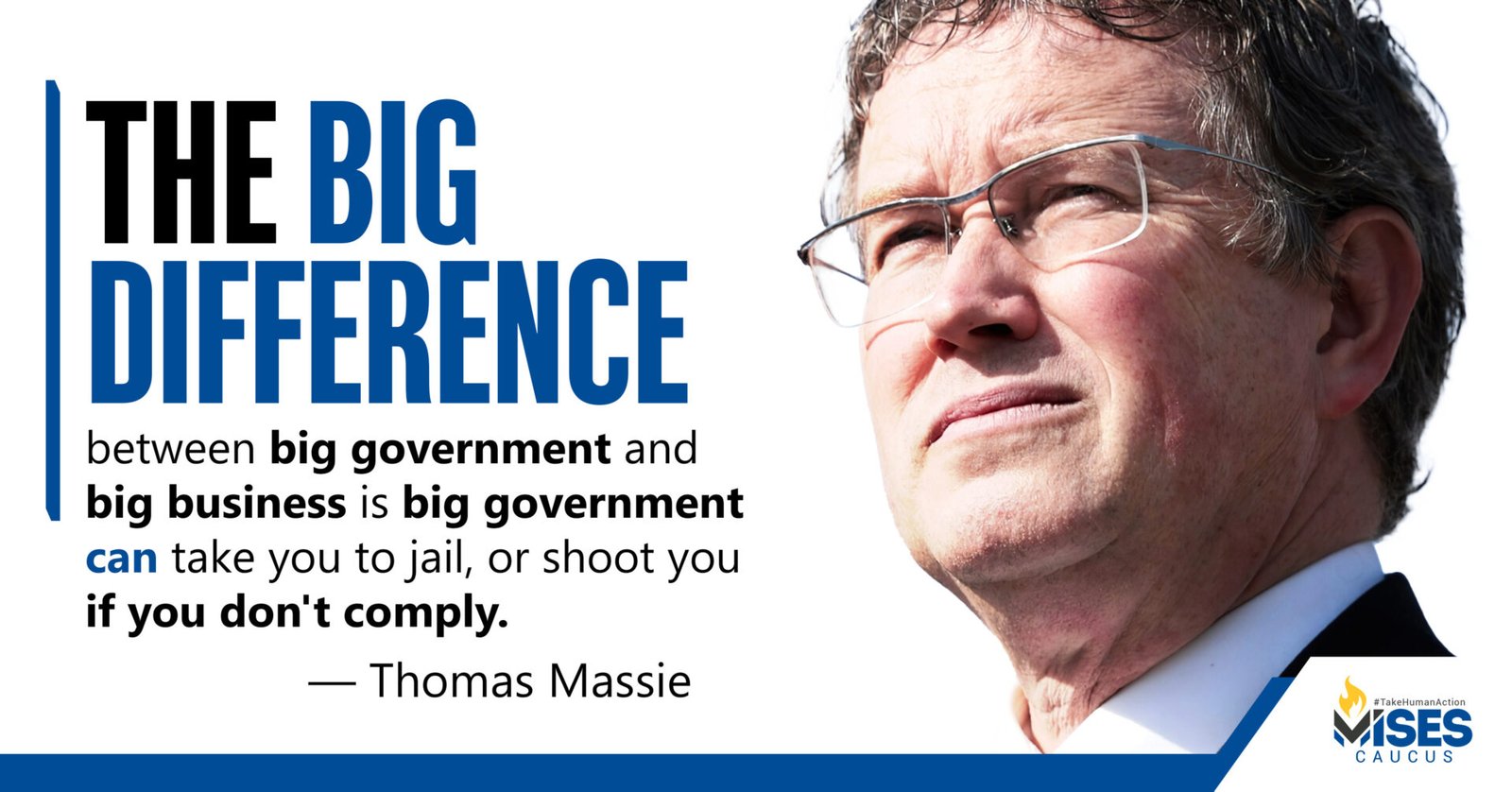

The big difference between big government and big business is big government can take you to jail, or shoot you if you don’t comply. —Thomas Massie

Personally, I’m very pro-life, but I don’t think it’s a good idea to take money through force and coercion to fund things that are against people’s conscience whether they’re pro-life or pro-choice. —Shane Hazel

One of the big differences between economics and politics is that politicians are not forced to pay attention to future consequences that lie beyond the next election. An elected official whose policies keep the public happy up through election day stands a good chance of being voted another term in office, even if those policies will have ruinous consequences in later years. There is no “present value” to make political decision-makers today take future consequences into account, when those consequences will come after election day. —Thomas Sowell

If you don’t agree with them on policy, you’re a sexist, you’re a bigot, or you’re a racist. The moment they claim that, with no evidence, other than we don’t agree… then they don’t get to lecture us on compassion, tolerance, or open debate. —Nick Freitas
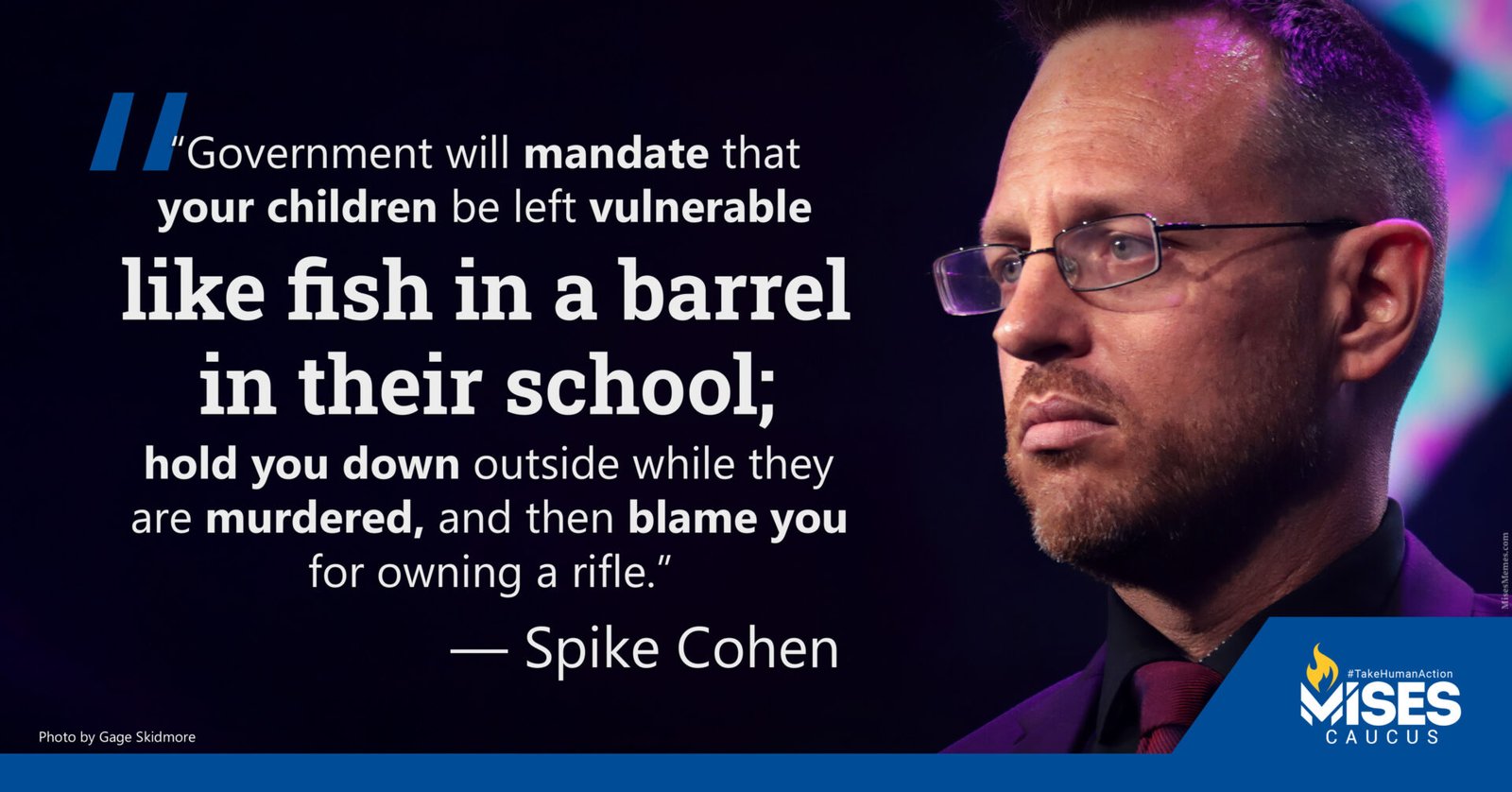
Government will mandate that your children be left vulnerable like fish in a barrel in their school; hold you down outside while they are murdered, and then blame you for owning a rifle. —Spike Cohen
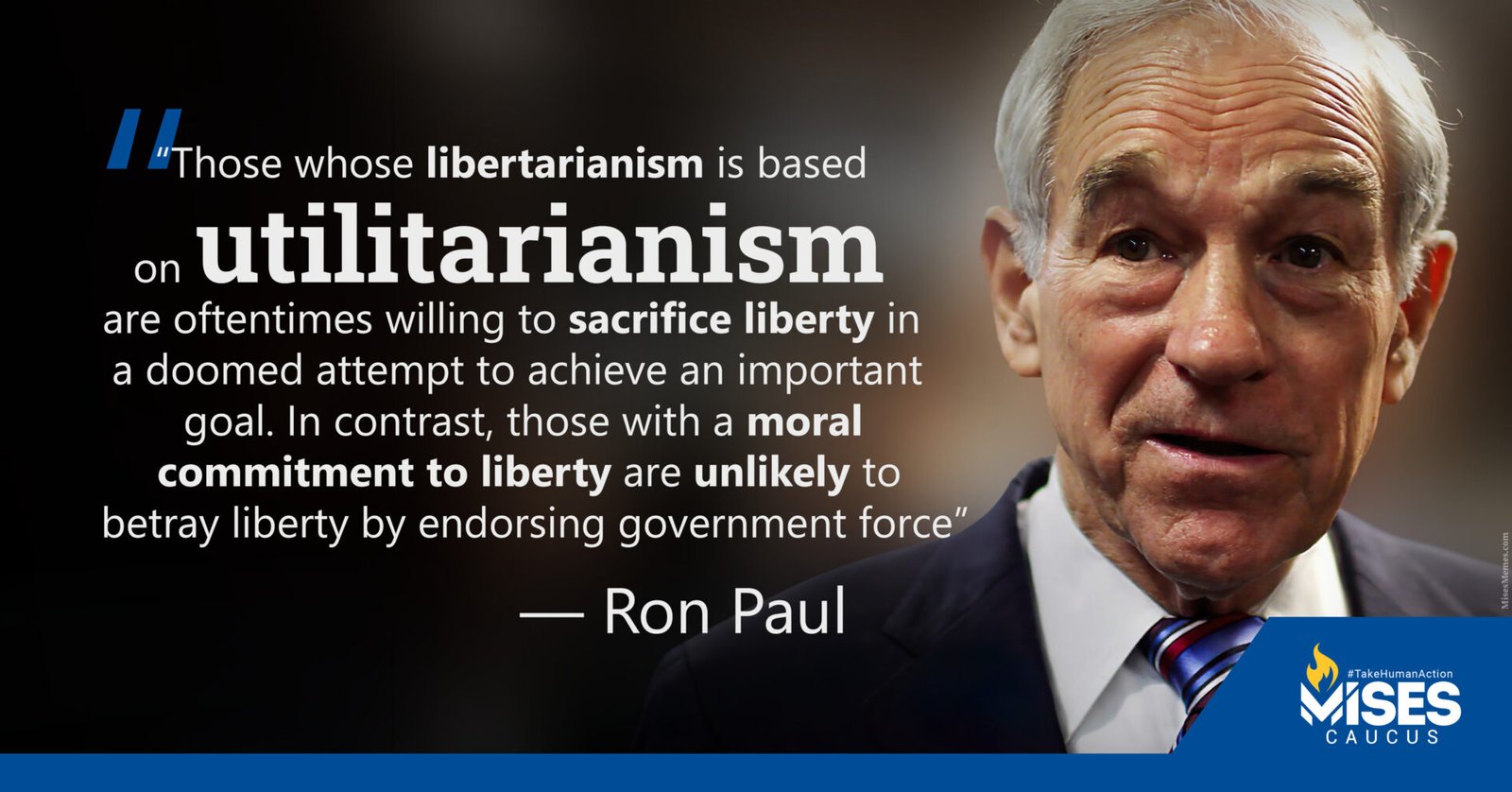
Those whose libertarianism is based on utilitarianism are oftentimes willing to sacrifice liberty in a doomed attempt to achieve an important goal. In contrast, those with a moral commitment to liberty are unlikely to betray liberty by endorsing government force. —Ron Paul
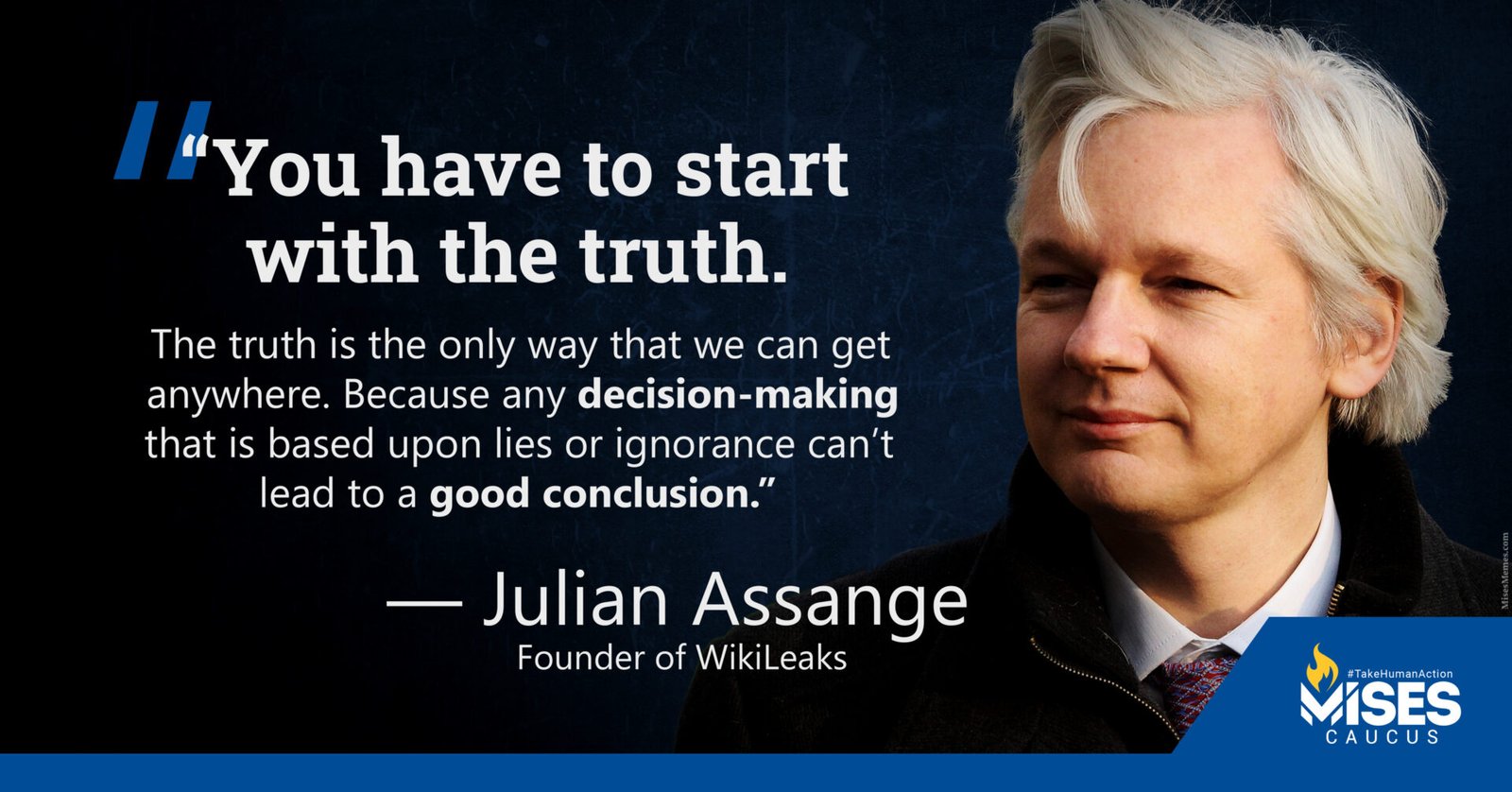
You have to start with the truth. The truth is the only way that we can get anywhere. Because any decision-making that is based upon lies or ignorance can’t lead to a good conclusion. —Julian Assange, Founder of WikiLeaks

It is hard to imagine a more stupid or more dangerous way of making decisions than by putting those decisions in the hands of people who pay no price for being wrong. —Thomas Sowell

Because we all see the world differently, we don’t know what’s best for everyone. That is precisely why we are libertarians. We start from a position of humility, not hubris. —Jeff Deist
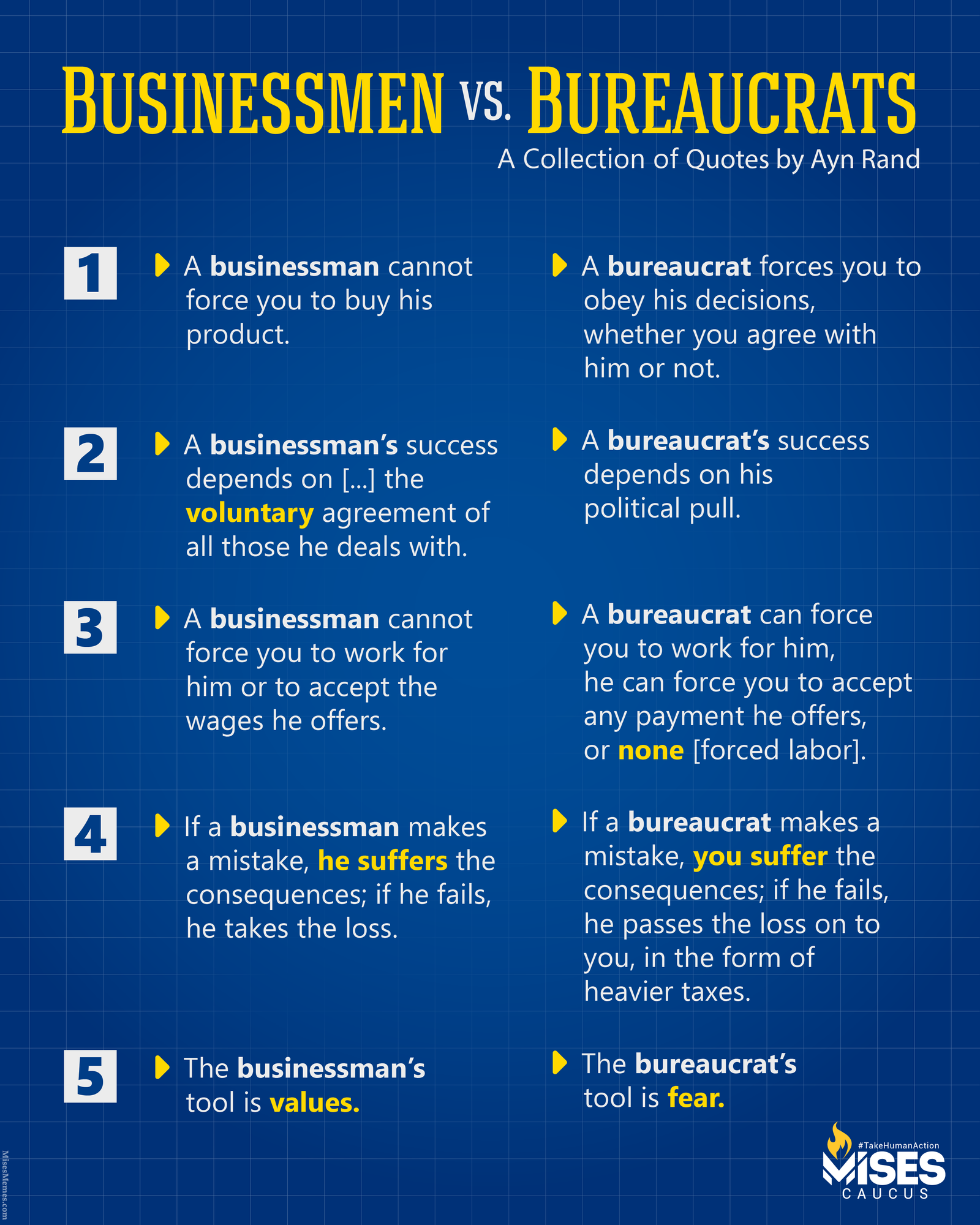
A businessman’s success depends on his intelligence, his knowledge, his productive ability, his economic judgment—and on the voluntary agreement of all those he deals with: his customers, his suppliers, his employees, his creditors or investors. A bureaucrat’s success depends on his political pull. A businessman cannot force you to buy his product; if he makes a mistake, he suffers the consequences; if he fails, he takes the loss. A bureaucrat forces you to obey his decisions, whether you agree with him or not—and the more advanced the stage of a country’s statism, the wider and more discretionary the powers wielded by a bureaucrat. If he makes a mistake, you suffer the consequences; if he fails, he passes the loss on to you, in the form of heavier taxes.
A businessman cannot force you to work for him or to accept the wages he offers; you are free to seek employment elsewhere and to accept a better offer, if you can find it. (Remember, in this context, that jobs do not exist “in nature,” that they do not grow on trees, that someone has to create the job you need, and that that someone, the businessman, will go out of business if he pays you more than the market permits him to pay you.) A bureaucrat can force you to work for him, when he achieves the totalitarian power he seeks; he can force you to accept any payment he offers—or none, as witness the forced labor camps in the countries of full statism.
The businessman’s tool is values; the bureaucrat’s tool is fear.
—Ayn Rand
A businessman’s success depends on his intelligence, his knowledge, his productive ability, his economic judgment—and on the voluntary agreement of all those he deals with: his customers, his suppliers, his employees, his creditors or investors. A bureaucrat’s success depends on his political pull. A businessman cannot force you to buy his product; if he makes a mistake, he suffers the consequences; if he fails, he takes the loss. A bureaucrat forces you to obey his decisions, whether you agree with him or not—and the more advanced the stage of a country’s statism, the wider and more discretionary the powers wielded by a bureaucrat. If he makes a mistake, you suffer the consequences; if he fails, he passes the loss on to you, in the form of heavier taxes.
A businessman cannot force you to work for him or to accept the wages he offers; you are free to seek employment elsewhere and to accept a better offer, if you can find it. (Remember, in this context, that jobs do not exist “in nature,” that they do not grow on trees, that someone has to create the job you need, and that that someone, the businessman, will go out of business if he pays you more than the market permits him to pay you.) A bureaucrat can force you to work for him, when he achieves the totalitarian power he seeks; he can force you to accept any payment he offers—or none, as witness the forced labor camps in the countries of full statism.
The businessman’s tool is values; the bureaucrat’s tool is fear.
—Ayn Rand